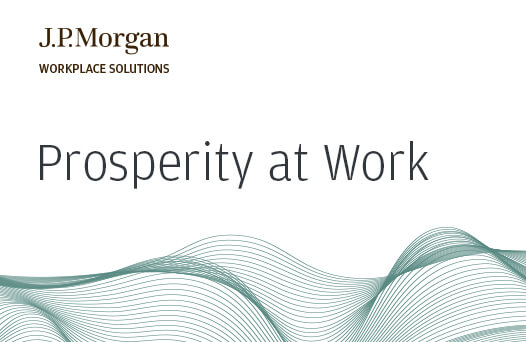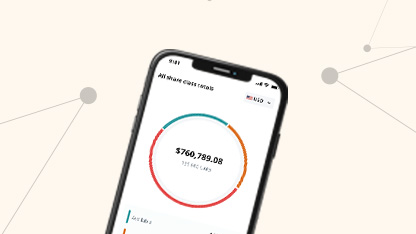The increase in global merger & acquisitions (M&A) activity that saw the number of new deals jumping by 22% year-on-year to July 2024 , continued throughout H2 of the year. Traditional sectors like energy and finance performed particularly well, while companies working in the area of AI remained of particular interest.
As M&A activity rises, confidence increases, leading to more completed deals. For professionals working in the HR and Compensation & Benefits departments of companies that may have a merger or acquisition in their future that means it’s a good time to begin getting you employee equity compensation plans prepared, as the results of such a deal can have major consequences, especially since existing plans may cease to exist or at least become unfeasible to maintain in this new structure.
What can your equity provider do for you?
Facing into a merger, acquisition, buy-out or similar event can be daunting for equity plan admins, especially if this is something that you or your team have never done before. Be aware though that while this might be the first time your company has experienced this, it doesn’t mean that support isn’t out there.
Reach out to your equity management software provider. Ask them the questions that you need to know the answers to and ask them what else you need to consider. As a client of J.P. Morgan Workplace Solutions you will have a client relationship manager appointed to guide you through the process – remember, we’re there to help. If you don’t already work with an equity compensation provider now is a good time to begin doing research so you can start planning what your new equity compensation offering might look like post-deal.
Gather your team
Consider who needs to be in the room for these discussions about your equity compensation. What departments need to be represented and at what stage along the way? Aside from your external equity plan provider think about what internal teams or specialists you might need to include, e.g. your legal teams, tax specialists or payroll department.
Leverage the resources already available to help the process go as smoothly as possible. As workloads increase while the team focuses on the M&A deal itself, it can be very easy to lose sight of certain elements, such as how the transition will impact your employee equity programme.
From public to private
One particularly notable trend in recent years is the number of private equity investment firms doing take-private deals. This is where a public company becomes private again and is commonly seen when buying-back companies whose share-price dipped heavily following an IPO and never fully recovered.
The most obvious impact for Compensation & Benefits teams here is that any share-based equity plans will no longer be relevant as the company steps off a stock exchange. Since these plans cannot transition into the new environment post-restructure, you will need to determine existing plans could be wound down and what form of equity compensation programme you might consider launching post-acquisition.
Don’t let silos develop
At times of change it’s easy for rumours and misinformation to run rife. Silos occur when different teams or areas are not communicating properly. Speculation among employees and other stakeholders already nervous about their roles and job security can be damaging – so be sure to keep the lines of communication about your equity rewards program open.
It doesn’t only happen in large corporations. In any company, information can fail to reach those who need or could benefit from it.
Remember that while a merger or acquisition can be a time of great excitement, especially if it was something your company had been planning for, it’s highly likely that there are going to be some concerns among employees.
Got a cap table? Get it ready
A well-maintained cap table is an indispensable tool at a time like this since it shows who you’re your company. If yours is looking a little rusty now is the time to get it back into shape – don’t wait until the M&A deal is already underway. Since the administrative burden associated with running a cap table becomes more complex over time, many companies choose to outsource some or all its management to a trusted cap table management provider.
Employee rewards are positive
Don’t lose sight of the fact that a merger or acquisition will often be the end result of a long-term focused business strategy. Employee equity programmes are often used as a strategic tool in preparing for, supporting and helping to further the specific objectives of these corporate actions.
Post-M&A your people may feel uncertain as they settle in. A stock plan can work as a great unifying factor, giving employees from different backgrounds a common goal to work towards.
What next? Talk to us
Ultimately, it’s all about getting prepared. Going through an M&A or other liquidity event is time-consuming, so knowing you’ve a trusted partner onside to support at this time can help give you peace of mind.
At J.P. Morgan Workplace Solutions we can provide the tools to help you manage all your equity, from inception to IPO, through mergers, acquisitions and more.
By visiting a third-party site, you may be entering an unsecured website that may have a different privacy policy and security practices from J.P. Morgan standards. J.P. Morgan is not responsible for, and does not control, endorse or guarantee, any aspect of any linked third-party site. J.P. Morgan accepts no direct or consequential losses arising from the use of such sites.
This publication contains general information only and J.P. Morgan Workplace Solutions is not, through this article, issuing any advice, be it legal, financial, tax-related, business-related, professional or other. J.P. Morgan Workplace Solutions’ Insights is not a substitute for professional advice and should not be used as such. J.P. Morgan Workplace Solutions does not assume any liability for reliance on the information provided herein.



